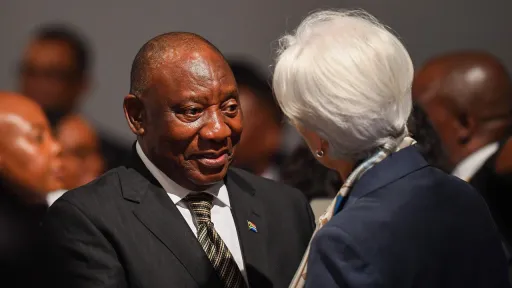Namibians voted Saturday on the last day of a controversially extended election after poll chaos and allegations of foul play.
Electoral authorities prolonged voting until Saturday in presidential and legislative polls, after the original election day - Wednesday - was marred by logistical and technical failures that led to hours-long queues, which some voters eventually abandoned.
On Saturday, hundreds of people queued up at the sole polling station in the capital Windhoek where some 2,500 voters had cast their ballots on Friday.
Sielfriedt Gowaseb, 27, managed to v ote in less than 30 minutes on Saturday but was critical of the arrangements.
'More venues'
"They should have set up at least another polling station where the majority of Namibians live. We would have needed more venues, one in the suburbs. Most Namibians don't live in the central business district," he said.
Namibia's opposition is hoping to bring an end to 34 years of rule by the South West Africa People's Organisation (SWAPO), which is facing its toughest challenge as disenchanted younger voters across the region reject traditionally dominant liberation-era parties.
SWAPO has governed Namibia since leading it to independence from apartheid South Africa in 1990, but high youth unemployment and enduring inequalities have eroded its support, with around 42 percent of the 1.5 million registered voters aged under 35.
Naita Hishoono, executive director of the Namibia Institute for Democracy, a nonpartisan NGO, echoed popular dissatisfaction.
First woman president
"It would have been helpful to open more than 36 polling stations... each constituency should have at least have one polling station open to accommodate everybody. Every voter should only stay half an hour to an hour in line and the whole voting process should take no more than 15 minutes," Hishoono said.
SWAPO's candidate, Vice President Netumbo Nandi-Ndaitwah, 72, could become the first woman to lead the country if she is elected.
The Electoral Commission of Namibia (ECN) has admitted to failures in the organisation of the vote, including a shortage of ballot papers and the overheating of electronic tablets used to register voters.
➤Click here to follow our WhatsApp channel for more stories.





























